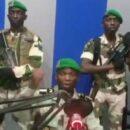Sudan: The Missing Academic Generation
In my dealings with American universities, I am often struck how there is a missing generation of scholars on Sudan. There is an older generation of academics who studied, taught and worked in Sudan in the 1960s, ’70s and early ’80s, many of them now either in retirement or approaching that age. And there is a cadre of younger scholars, in doctoral or post-doctoral programmes, who are producing a new English-language literature on Sudan. But there are very few of us in-between.
One reason for the scarcity of foreign scholarship on Sudan is the combination of war and the self-imposed isolation of the country in the 1990s, when visas of any kind were hard to get and the Arabicization of higher education discouraged Anglophone academics from joining Sudanese universities as faculty. For many would-be scholars of Sudan, the point of entry was the NGO sector, especially those working in southern Sudan.
Another reason is the U.S. policy of sanctions, which extends to educational cooperation. America has placed enormous obstacles in the way of its own students and academics learning about Sudan, and in the process has created an impoverished intellectual environment that has lowered the bar on who can be considered an “expert” or “authority” on the country in the media and among policymakers. Of all the self-inflicted wounds of the U.S. policy of sanctions and isolation, this is the most remarkable. A doctoral student looking for a supervisor will have a better chance in the Norwegian town of Bergen than in New York, Massachusetts or California.
Sudanese scholarship has suffered too. Sudanese academics have suffered from isolation, from scarcity of resources, from lack of scholarships and fellowships, and because their expertise is too infrequently recognized abroad. Southern Sudanese have suffered as much as their northern counterparts; the peace studies departments of Darfur’s young universities have been shortchanged.
This will surely change. A good start would be for the U.S. to reverse its sanctions policy.







It’s a problem of culture that gets worse by the day. There is an exclusiveness about dialog. Men hang out and drink tea/beer and talk politics with men. Women with women. The youth fend amongst themselves in a culture of virile communal families and sharp patriarchal age-based concessions in view points. Young men are seldom “initiated” post-adolescence, if at all, but certainly not during stages of formative development. This leaves room for independent thinking but also steers most towards disenchantment. Also, the older generation tends to be very tight-lipped and discouraging, to ineffective ends.
Time is the NCP’s greatest ally. Conservativeness has grown in Sudan, and it is only those born in the 50s and 60s that know of a different and progressive Sudan. The rest of us can but get glimpses of the nostalgia and view black-and-white photographs of once liberal polo-shirt wearing men and skirt wearing women in what seems like a forgotten age of optimism, opportunity, and cheerfulness. The baby boomers have absconded the golden years and some are now confined to apply their intellectual capacity in academic departments in the west. The NCP are not as strong, committed, or as nearly-organized as some of the stronger despotic regimes in North Korea, Myanmar, and Iran.
I am, of course, referring to my own experience. But I challenge anyone to disagree with the generality of this observation.
All-in-all, it is very difficult to gauge what the political spectrum is in Sudan. Based on some of the input in this forum, I’m also starting to entertain a surrender on the part of many intellectuals.
Dear Alex,
I can perceive a theme of “intellectual leadership” emerging within your columns and I laud it. Political intellectuals in Sudan and within the ranks of the international organisations working in Sudan are an endangered species, drowned by a veritable avalanche of drivel produced from our own universities, our political parties, and the international commentariat. The entry of President Thabo Mbeki into Sudan’s political scene has given a much-needed dose of courage to those of us who believe that objective and rigorous political analysis is an essential prerequisite for progressive change, and that the dumbing down of thinking evident in so much of what tries to pass for political analysis, is a step on the road to disaster. Bon courage and continue to eviscerate the infantile and pedestrian non-thinkers who will, given the smallest chance, dictate national and international policy for their narrow interest!
Dear Sayid Abd al-Wahab Abdalla:
Beautifully put!
Best,
Ibrahim Adam
El Fasher
North Darfur
Sudan